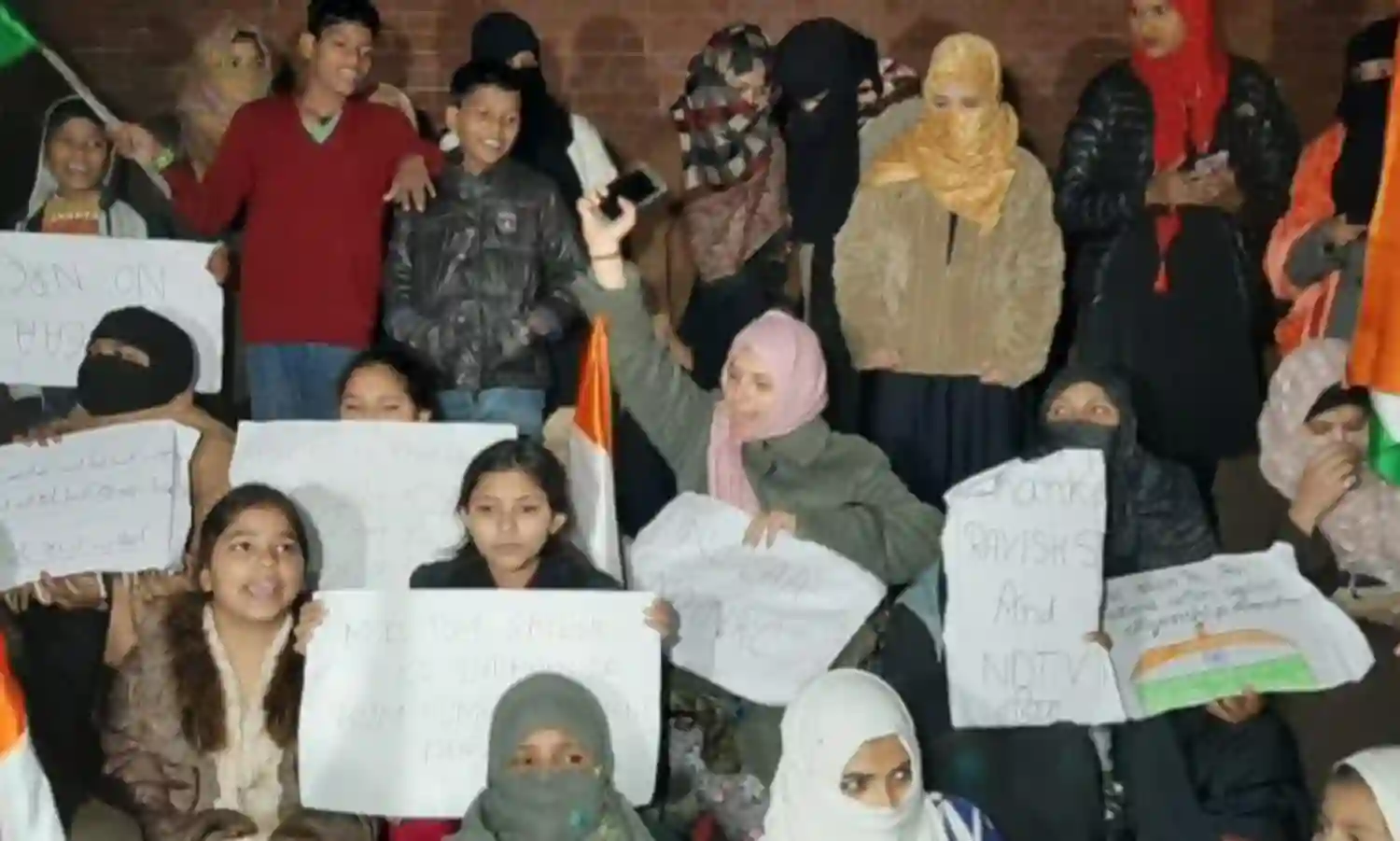Power Shut Off, Toilets Locked but Women at Lucknow's Ghanta Ghar Refuse to Budge
Power Shut Off, Toilets Locked but Women at Lucknow's Ghanta Ghar Refuse to Budge

LUCKNOW: By late Friday night, about a hundred women from different towns, localities and slums along with their children gathered to begin the sit-in demonstration at the Clock Tower (Ghanta Ghar) in Hussainabad, Old Lucknow.
In the bone chilling winter, women of Lucknow came to the forefront - to protest to break the silence, to speak against the highhandedness of the regime and the controversial Citizenship Amendment Act and National Register of Citizens. The crowd swelled as students and the elderly joined in.
Yasmeen Lateef, who is in her mid-seventies waits for her grandchild to bring a hot cup of tea from the corner stall at clock tower. “I asked my son to drop me at clock tower, so I could take part in the protest. We are here to express our solidarity and stand firm against the CAA. The determination and defiance of women at Shaheen Bagh is evident and we all are with them,” Yasmeen said.
A few women, who reside in Khadra (a locality in the old city of Lucknow), hold placards and chant slogans of Azadi. Shameem begum who is from east Uttar Pradesh, narrates the story of her grandmother who lived in Islamabad and her grandmother’s sister who was married in Punjab. A tale of emotional ties and love which couldn’t separate them. Even after being separated by partition, they would call each other and make time to discuss life and the childhood spent together, such is the bond of two women - in spite of politically created barriers. “We understand each other on a level that I honestly think a man never will. We all know how to fight these people and win it all over again.” Begum said - underlining the feminist narrative of the protest.
Inspired by the women of Shaheen Bagh, hundreds of women are joining in the protest at the clock tower.
After the UP police’s brutal crackdown on protesters on December 19, voices of dissent were silenced - perhaps due to fear of reprisal. After almost a month, the women of Lucknow are on the streets again -- to claim their space and continue the resistance.
While the police have tried to break up the sit-in and have asked protestors to leave, people are resisting.
Police are using tactics such as switching off lights and closing public toilets, the protesters say. In the face of this intimidation, locals have opened up their homes -- asking protesters to come in and use the washrooms whenever needed.
Sumaiyya Rana, a social activist said, “they have switched off the lights here (to the clock tower and streetlights.) The nearby public toilet was locked to trouble us. There are children, women and elderly people facing problems but the police continues to threaten us in merciless ways.”
As in Shaheen Bagh in Delhi, Muslim women are now at the forefront of the protests in Lucknow. Hijab clad women and girls sing songs of resistance and chant slogans like ‘Hum leke rahenge Azadi’ and ‘Hindustan Zindabad.’
Wearing an embroidered black burqa, Reshma Jamal, a homemaker says, “the police is taking away blankets and food packets but our protest is indefinite. We are fighting for our rights, for our children. For the very existence and future of our children.”
“We are here after almost a month and have started our protest. Women out there in Shaheen Bagh have inspired us to come on the streets and fight [for our rights]. This is the largest women-led agitation in the country and we won’t stop,” says Varisha Saleem, student.
There are mothers, grandmothers, poets, artists, housewives and singers. Sometimes, they laugh and chant slogans with determination, other times they are angry. They take time to pray, go home, cook food and return with full fervour.


